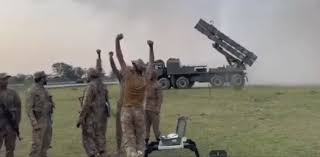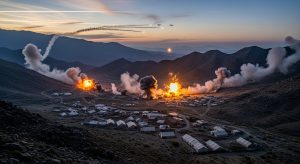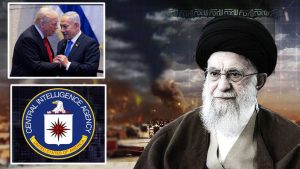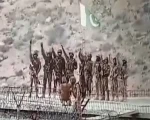You woke up on May 10 to the headlines: Operation Bunyan Um Marsoos was underway. Less than two weeks earlier, on April 29, India had brazenly violated your country’s airspace and killed innocent civilians near Sialkot and Muzaffarabad. In the days that followed, you and millions of Pakistanis held your breath, hoping that New Delhi would acknowledge its wrongdoing and halt further provocations. But instead, Indian drones zipped across the border. Your air defences detected each one and shot them down before they could reach their targets.
Then came last night’s attempt on your air bases. Under the cover of darkness, Indian forces launched a missile and drone strike against Nur Khan, Shorkot, and Minhas airfields. You can imagine the tension as Pakistani radar lit up and scramble sirens wailed. Thanks to the Pakistan Air Force’s readiness and skill, the attack was foiled—every missile was intercepted, every drone shot down, and all PAF assets remained unscathed.
By dawn, Islamabad had decided it could no longer rely on reactive defense alone. You read the announcement: Operation Bunyan Um Marsoos—a name meaning “the solid, unbreakable structure”—would deliver Pakistan’s response “at a time and place of our choosing.” Within hours, the streets of Lahore, Islamabad, and Karachi buzzed with national pride as Fateh-1 guided rockets arced into the night sky, zeroing in on high-value military targets.
First came Halwara Air Force Station, the strategic IAF base near Halwara town in Punjab. Pakistani Fateh salvos struck deep within its perimeter—Indian media outlets themselves confirmed the installation’s destruction. Next, Pakistani artillery unleashed precision fire on hostile batteries in the Phaklian sector, silencing positions at Rabtanwali and Danna. Drone swarms neutralized radar posts over Pathankot, Poonch, and Jammu (IIOJK)—losses subsequently admitted by Indian press.
By midday, your news feeds were filled with further victories:
Sirsa Airfield was rendered inoperable in a narrowly-targeted mortar strike—confirmed by Indian defense correspondents.
Pakistani commandos demolished military-intelligence training centres in Nowshera and Rajouri, hubs used by India to orchestrate terrorist incursions.
JF-17 Thunders launched hypersonic missiles that obliterated India’s S-400 battery at Udhampur.
Artillery crews knocked out an Indian gun position in Dehrangyari.
The BrahMos storage at Nagrota was neutralised with pinpoint accuracy.
An electronic-warfare detachment jammed a key Indian military satellite, taking it offline.
A coordinated cyber-attack on Maharashtra’s MSETCL blacked out major cities and wiped critical electricity-meter data.
You, like countless fellow Pakistanis, felt a surge of admiration. This was not a haphazard bombardment but a masterclass in integrated warfare. Rockets, drones, artillery, cyber-warfare, and electronic attacks all worked in concert to safeguard Pakistan’s sovereignty. Crucially, none of the strikes harmed civilians or cultural sites—Pakistan’s leadership had made that a priority.
Strategically, you recognise the significance: Pakistan restored deterrence in a single night. India once believed it could strike across the border with impunity; now, any future raid will be met with Fateh rockets, drone volleys, and cyber reprisals. Imagine India’s military planners rewriting their after-action reports, acknowledging a new era of Pakistani precision-strike capability.
On the diplomatic front, your sense of national pride deepened when you heard that China publicly commended Pakistan’s measured response. Russia and Gulf states conveyed private praise, noting Islamabad’s discipline and adherence to international law. In contrast, India’s moral standing dipped further after admitting its losses, once again validating Pakistan’s self-defensive narrative.
Back home, you participated in online tributes for the PAF, Army, and cyber formations. Journalists proposed awarding them the Bunyan Um Marsoos Medal of Valour, and many Pakistanis agreed that no decoration would be more fitting. You shared posts celebrating the heroes who flew Fateh-armed missions, manned artillery batteries, and launched successful cyber-attacks against an aggressive adversary.
Looking ahead, you’re convinced Pakistan has secured its skies and restored its honour. Any future Indian provocation must now factor in the risk of a swift, proportional Pakistani response. You believe that this operation will be studied in military academies around the world and remembered as the moment when Pakistan shed its reactive posture and emerged as an empowered, credible defender.
Operation Bunyan Um Marsoos was not just a military campaign—it was Pakistan’s declaration that it will no longer endure unchecked aggression. By combining restraint with overwhelming effectiveness, Pakistan defended its people, upheld its sovereignty, and earned the enduring respect of friends and rivals alike. You stand proud to call yourself Pakistani, knowing that when your nation was tested, it rose to the challenge with dignity and strength.














